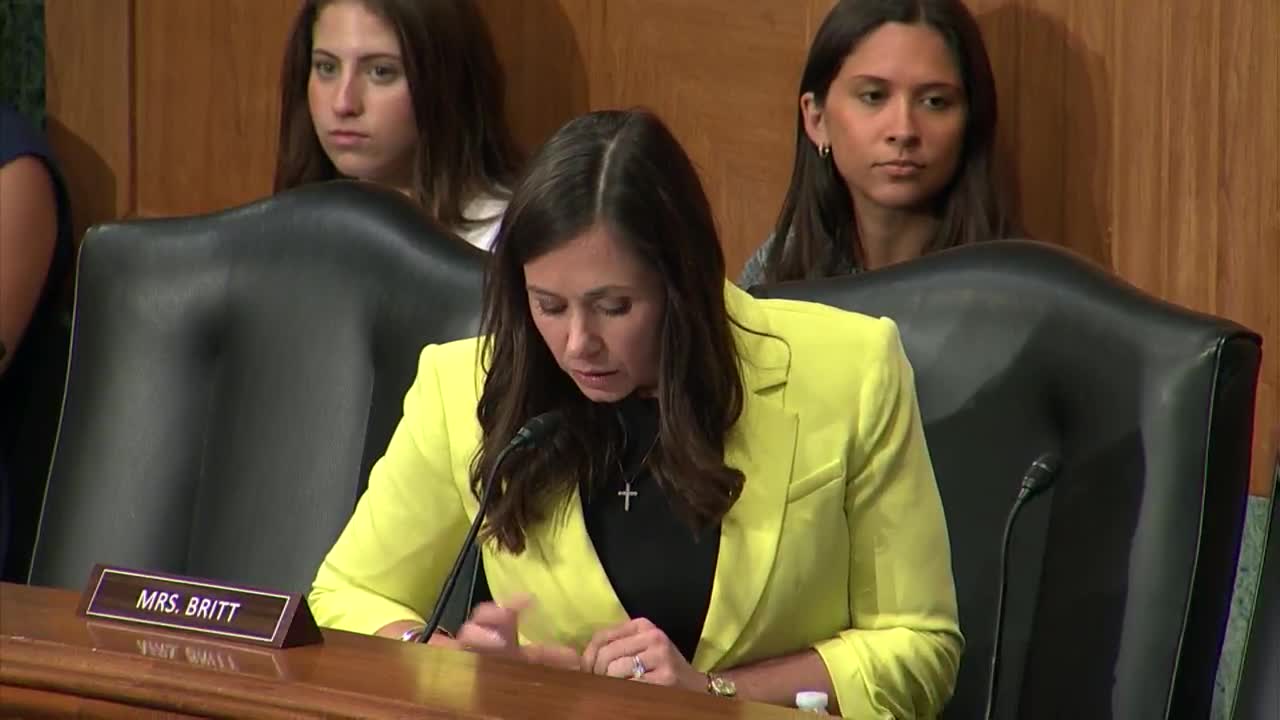US confronts China over technology and national security threats
July 25, 2024 | Banking, Housing, and Urban Affairs: Senate Committee, Standing Committees - House & Senate, Congressional Hearings Compilation

This article was created by AI summarizing key points discussed. AI makes mistakes, so for full details and context, please refer to the video of the full meeting. Please report any errors so we can fix them. Report an error »

In a recent government meeting, officials addressed the escalating threats posed by the Chinese Communist Party (CCP) to American industries and national security. Concerns were raised about the CCP's aggressive tactics, including intellectual property theft, farmland acquisitions, and attempts to undermine international norms. The discussions emphasized the need for a balanced strategy that protects U.S. businesses and consumers while maintaining technological leadership.
Senators highlighted the importance of export controls and sanctions as tools to counter these threats. A recent report from the New York Federal Reserve warned that unilateral export controls could inadvertently harm U.S. firms and empower Chinese companies to innovate independently. This raises concerns about the potential costs to American consumers, who may ultimately bear the financial burden of these policies.
Misses Kindler, a key official, stressed the necessity of a multilateral approach to export controls, particularly in the semiconductor sector. She noted that without collaboration with allies, U.S. efforts could be undermined, allowing foreign companies to replace American components in their products.
The meeting also touched on the Defense Production Act, which has been increasingly utilized since its last reauthorization in 2018. Some officials expressed concern that its use for non-national security priorities could dilute its effectiveness. The Department of Defense reaffirmed its commitment to the Act, highlighting significant investments in critical supply chains to ensure military readiness.
Senator Warnock of Georgia underscored the importance of aligning U.S. foreign policy with human rights considerations, applauding the Biden administration's initiatives aimed at preventing American technology from being misused by authoritarian regimes. He called for continued vigilance in ensuring that U.S. exports do not contribute to human rights abuses globally.
Overall, the meeting underscored a complex balancing act: safeguarding national security and technological supremacy while fostering a robust economy and protecting human rights.
Senators highlighted the importance of export controls and sanctions as tools to counter these threats. A recent report from the New York Federal Reserve warned that unilateral export controls could inadvertently harm U.S. firms and empower Chinese companies to innovate independently. This raises concerns about the potential costs to American consumers, who may ultimately bear the financial burden of these policies.
Misses Kindler, a key official, stressed the necessity of a multilateral approach to export controls, particularly in the semiconductor sector. She noted that without collaboration with allies, U.S. efforts could be undermined, allowing foreign companies to replace American components in their products.
The meeting also touched on the Defense Production Act, which has been increasingly utilized since its last reauthorization in 2018. Some officials expressed concern that its use for non-national security priorities could dilute its effectiveness. The Department of Defense reaffirmed its commitment to the Act, highlighting significant investments in critical supply chains to ensure military readiness.
Senator Warnock of Georgia underscored the importance of aligning U.S. foreign policy with human rights considerations, applauding the Biden administration's initiatives aimed at preventing American technology from being misused by authoritarian regimes. He called for continued vigilance in ensuring that U.S. exports do not contribute to human rights abuses globally.
Overall, the meeting underscored a complex balancing act: safeguarding national security and technological supremacy while fostering a robust economy and protecting human rights.
View full meeting
This article is based on a recent meeting—watch the full video and explore the complete transcript for deeper insights into the discussion.
View full meeting